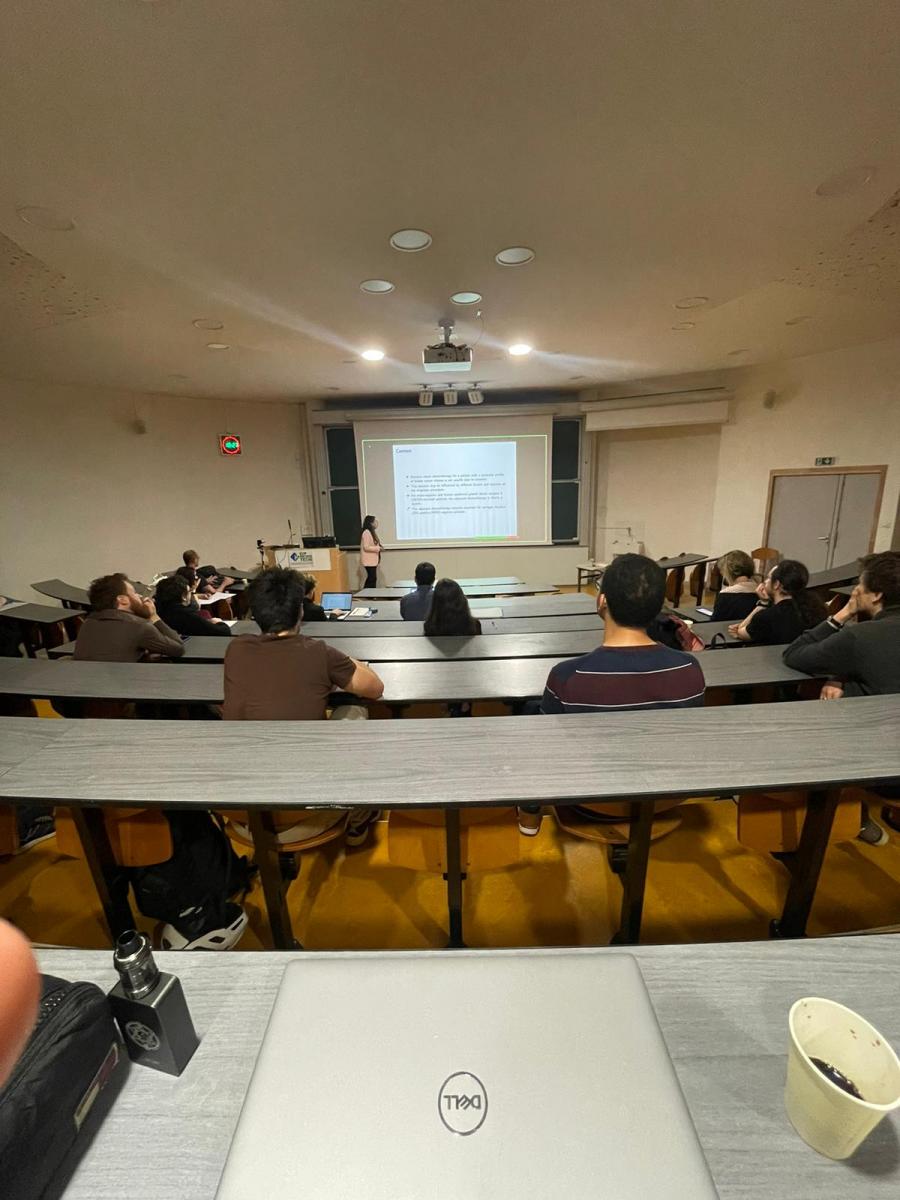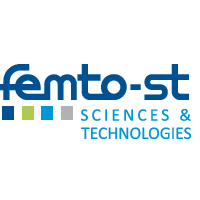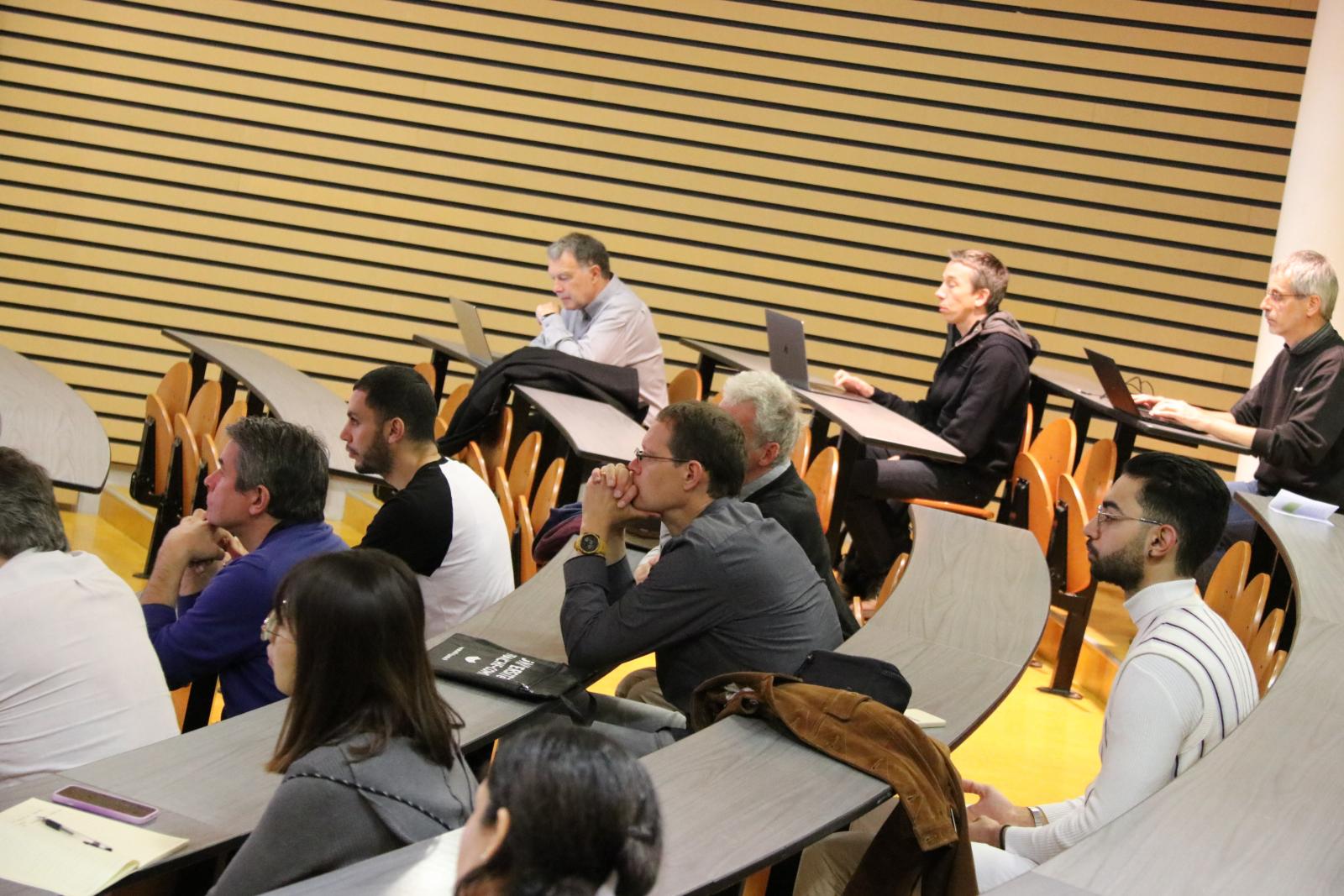3ème édition
La journée se déroulera à l’Amphi Jules Haag de SUPMICROTECH-ENSMM le 20 juin 2025.
Programme
10:00 AM – Geneviève Dusson (LMB)
Title: Deflation methods and applications
Abstract: Deflation methods are very useful for calculating several solutions of the same equation. In this talk, I will present a particular deflation technique and its use in two different contexts: 1- for the computation of resonances of Schrödinger equations, and 2- for the fast computation of particular Wasserstein barycenters in the context of nonlinear model reduction.
10:30 AM – Kang Liu (IMB)
Title: Approximation of dynamical systems by semi-autonomous neural ODEs
Abstract: In this presentation, we review two fundamental theorems from the universal approximation theory of neural networks (NNs). Inspired by these results, we extend the theory to the setting of dynamical systems by introducing semi-autonomous neural ordinary differential equations (SA-NODEs). We show that SA-NODEs can approximate any dynamical system under certain regularity assumptions on the vector fields. We establish qualitative approximation results and quantify the convergence rate using the concept of Barron spaces. Training SA-NODEs is formulated as an optimal control problem, where the adjoint method plays the role analogous to backpropagation in classical NNs. Numerical experiments highlight the expressive power and approximation capabilities of SA-NODEs.
11:00 AM – Abdenbi Mohand Ousaid (FEMTO-ST)
Title: Structural optimization of micro-mechatronic and microrobotic systems
Abstract: This presentation will address the development of methodological design tools based on topology optimization, with applications in piezoelectric actuation, piezoelectric energy harvesting, and electrostatic actuation. The central question: how can we enhance their performance?
11:30 AM – Valentin Calisti (FEMTO-ST)
Title: Topological optimization of architected material
Abstract: In this talk, we introduce geometrical methods for structural optimization, which are part of the general framework of so-called topological optimization. The application of these methods to the specific case of microstructures will be presented through an example of strain-gradient material design.
2ème édition
La journée s'est déroulée à l’Amphi Jules Haag de SUPMICROTECH-ENSMM le 2 juin 2024.

Programme
10h Clément Dombry (LMB) et Zeina Al Masry (FEMTO-ST): A new methodology to predict the oncotype scores based on clinico‐pathological data with similar tumor profiles
10h30 Céline Elie-Caille et Benjamin Brunnel (FEMTO-ST): Analytical discrimination of extracellular vesicles subsets in a complex biological sample, by machine learning
11h Bastien Polizzi (LMB): Modélisation du microbiote
11h30 Julien Bourgeois (FEMTO-ST): Algorithmique distribuée pour les graphes
1ère édition
Cette journée a eu pour objectif de favoriser la rencontre des chercheur(se)s de FEMTO-ST autour des techniques et outils mathématiques présents à l’institut.
Elle a été composée d’exposés scientifiques, d’une table ronde et d’un questionnaire pour avoir un retour sur la journée et les futurs évènements à organiser dans ce cadre.
La journée s'est déroulée à l’Amphi Jules Haag de SUPMICROTECH-ENSMM le 10 novembre 2022.
Programme
10h : Accueil
10h15 - 11h15 : Stéphane Chrétien (Université Lyon 2)
Relationship between sample size and architecture for the estimation of Sobolev functions using deep neural networks
11h15 - 11h30 : Antoine Perasso (Université Franche-Comté)
Présentation de l’axe math bio santé
11h30 - 12h30
Questions et discussion autour des mathématiques à FEMTO-ST et le format des futurs évènements
12h30 - 14h Déjeuner
14h - 16h Exposés FEMTO-ST
Roberta Tittarelli
Estimations d'erreur a posteriori pour la fluidodynamique
Noura Dridi
Mesure de l'incertitude pour la prédiction avec les réseaux de neurones
Christophe Guyeux
Quelques aspects de la génération d'aléa en informatique
Alain Giorgetti
Computer-assisted enumeration of finite geometries related to quantum contextuality


